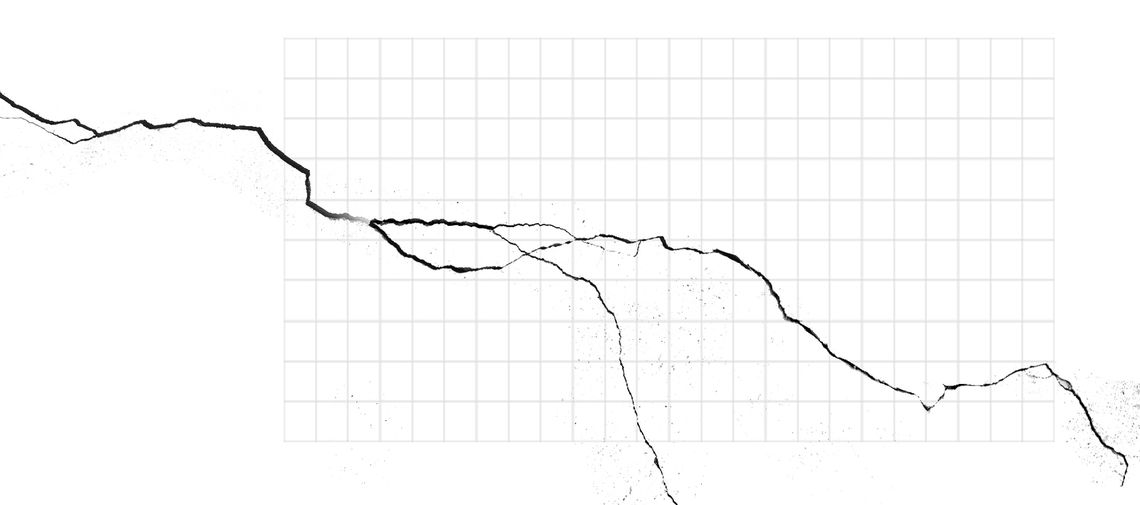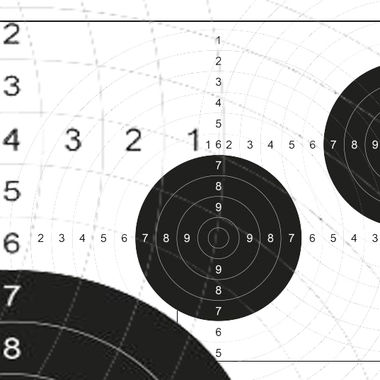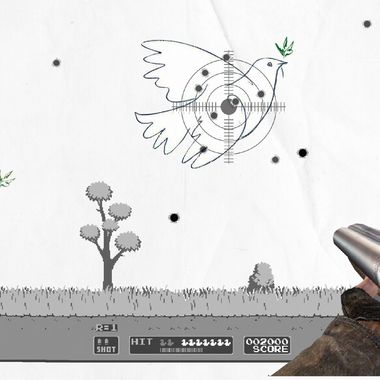Sun Dec 20 2020 · 7 min read
Demarcation of the Armenian-Azerbaijani Border in Syunik

By Maria Titizian

- Friday, December 18
Protesters have blocked the Goris-Kapan highway. They are saying they don’t have land to give to the Azerbaijanis. We are forced to take an alternative route to the southern Armenian city of Kapan through treacherous mountainous roads covered in heavy snow and ice. This unfinished road might end up being the main artery connecting the Syunik region with the rest of Armenia as portions of the existing state highway, built during the Soviet era, now winds through Azerbaijani territory.
More than a month after the trilateral agreement that ended the 2020 Artsakh War, the demarcation of new state borders between Armenia and Azerbaijan is underway. The eastern border of Armenia’s southern region of Syunik will now be bordering Azerbaijan, instead of the Republic of Artsakh. Those territories were either taken back during the hostilities or returned to Azerbaijan as part of the truce agreement.
On December 17, the mayor of Kapan, Gevorg Parsyan said that he had been informed that all military positions around the city had to be handed over to Azerbaijan by 5 p.m. on Friday, December 18. The redeployment order didn’t only apply to the city of Kapan, but also to the villages of David Bek, Kaghnut, Ujanis, Yeghvard, Agarak, Ditsmayri, Syunik, Geghanush, Jakaten, Shikahogh, Nerkin Hand and Tsav. During the Artsakh war, Armenian self-defense troops, composed overwhelmingly of volunteers, had built military positions to protect their towns and villages as Azerbaijani forces began advancing toward Syunik. Some of these military positions ended up on Azerbaijani territory. They are now being forced to retreat to positions closer to Kapan (and on Armenian territory). The same is being applied all along Syunik’s border. This repositioning of troops has led to protests by residents, whose security is now in peril as Azerbaijani troops move to take over those positions, some of which are on strategic heights.
The Road From Kapan to Goris
Armenian forces were told to withdraw from a number of military positions from several villages near and around the town of Kapan, stretching along the eastern borderline of the Syunik region. These posts were created during the 2020 Artsakh War. This meant the loss of a number of strategic heights and potentially even homes and agricultural fields/orchards. The challenge is that no one is entirely sure what those borders are.
Driving into the village of David Bek, soldiers in military fatigues and AK-47s look at us suspiciously. Despite being in Armenia proper, the village had come under shelling several times by Azerbaijani forces during the war. In fact, on November 2, a resident of the village was killed and a number of others were wounded. We understand the steely stares. We approach them with a smile and everyone relaxes. Gor Sargsyan, a volunteer from the town of Etchmiadzin has come to David Bek to man the military posts until December 28. Prior to being stationed here, he was in Jabrayil. Khachatur Poghosyan from Armavir is also serving alongside Sargsyan. “We were sent here to protect the village and so the conscripts can go home and rest a bit,” Sargsyan says. They’re mum about the intense battles that happened in Jabrayil. “God must have loved us because we were spared,” says Poghosyan as his eyes wander toward the mist-covered mountains in the distance. They had walked 2 km from their military post on the outskirts of the village to get to the church. “We came to light candles for all those who lit candles for us,” Sargsyan says with a smile. He bids us goodbye and walks away into the mist with his comrades.
Artur Martirosyan is the commander of the self-defense detachment in David Bek village. He is standing near a tractor that is filling up a trench with muddy soil. He is surrounded by several younger soldiers. During the war, Martirosyan and his men had stood in defense of the village as Azerbaijani troops advanced toward Syunik. He lost five of his men; another 12 were wounded. Being left alone to protect the village, Martirosyan and his men had marked off and built several military positions to provide cover for them as they fought off the Azerbaijanis. One of those positions is technically now on Azerbaijani territory and will have to be handed over.
Martirosyan is a towering figure, stoic and matter-of-fact. The trench that they carved out of the soil a few months ago is now being covered up. “We are closing off this trench so that we don’t gift it to the Azerbaijanis,” he says. He won’t divulge how many additional positions they have but says they are on higher ground and are more than adequate as a defense. Russian forces have been to their positions over the last several days. In a matter of hours, they will have to hand that one particular post to the Azerbaijanis.
The situation is almost absurd. The military position to be ceded to the Azerbaijani army is about 30 meters away from the remaining Armenian positions. Martirosyan says the borders are not being demarcated according to Soviet era borders, but according to new maps. “Someone has drawn up a new map, but I have no idea who,” he says. “All I know is that the Azerbaijani side is fighting for every single square meter of soil.” It’s not clear if the Russians will be accompanying the Azerbaijani soldiers. Until they come, no one is ready to leave. Martirosyan says that, as locals (he is from Kapan), they are following the orders of their mayor, the local governing body and their military command. It feels, however, as though they’ve been abandoned, left alone to protect the village, their homes, their lives and the military positions they have built.
Although his men are exhausted and cold, they will stay as long as necessary. Gevorg Minasyan, also from Kapan, stands quietly next to his commander. He has been here for two months. He has a wife and two children back home. He says they’re all upset. “We dug these trenches with our own hands, built lodgings and now we have to dismantle it all, fill up the trenches so that the Turk [Azerbaijani] doesn’t come and sit in this trench and fire at us,” he says. Minasyan will be standing at these military positions until he receives orders to finally go home.
After David Bek, we go to Kapan. The mood is somber. Angry. Many residents feel as though they’re being swallowed up, surrounded now on all sides by enemies, with nowhere to fall back… No one can say with certainty what exactly is going on. Will Russian peacekeepers or Russian border guards enforce calm at the state border? What maps are being used for the demarcation? Who is negotiating those borders on behalf of Armenia? When will the Armenian Armed Forces send in their troops to take over from the volunteers that have formed self-defense units? Questions linger in the air with no answers in sight. One thing they do know is that the state highway is now a risk for anyone daring to take it. They tell us to take the alternate route.
- Saturday, December 19
We head out from Kapan toward Goris. We take the state highway and pass through the villages of Artsvanik, Dzorak and reach Shurnukh. It is a small village of 45 families. A portion of Shurnukh - eleven homes - falls in Azerbaijani territory. Eleven homes out of 45.
Ararat Aghabekyan, a member of the village council of Shurnukh, is leading one of the volunteer battalions. He said they pulled back from their positions yesterday but so far, neither the Azerbaijanis nor the Russians have come to claim them. He said that Armenian border guards arrived at the village today to assess the situation. “Yesterday, Russian forces came and said verbally for us not to worry, that they will be doing everything to make sure those 11 homes remain on the Armenian side,” he said, acknowledging, however, that it was only a verbal promise with no documents to back it up.
The Azerbaijanis, according to Aghabekyan, are insisting on marking and maintaining the state border as they understand it. “They are deciding where their borders are using GPS coordinates,” he said, adding that it’s not clear what the Armenian side is doing. “I have not drawn up the maps, the villagers have not drawn up the maps, you should ask the leader of the state who has drawn up those maps.”
Aghabekyan says the situation is not only incomprehensible but also disgraceful. The volunteers, the civilian militia, the border guards will do what it takes to ensure those homes stay within the borders of the village, he insisted.
While the Russian command has said that they will guarantee the security of the highway and the border, Aghabekyan takes a more “let’s wait and see” approach.
During the course of the war, the volunteer self-defense units established five military positions to protect the village, including two observation posts to monitor the movement of Azerbaijani forces. Today, they have pulled back from those positions.
The women and children of Shurnukh have not been evacuated. “Everyone is here… the village is living, breathing,” Aghabekyan says. “Look at the smoke drifting from each and every house.” He cringes at the thought that Syunik might fall prey to some “dirty game.”
“Today, nothing is secure. The highway is not secure; there is no neutral zone between the Azerbaijani posts and our positions,” he says.
Villagers, members of the local governing bodies, leaders of communities and mayors are protecting Armenian lands along the border of Syunik on their own with little to no assistance from the government or the Armed Forces. They have been told to try and negotiate better conditions for themselves. On their own.
also read
It Has to Be Said: Loss
By Maria Titizian
The defeat in Artsakh was a profound loss on multiple levels. The actions taken today, will impact the future of the Armenian nation.
12 Imperatives for Securing Armenia’s Future
By Raffi Kassarjian
We have a maximum of five years to significantly improve the security of the country along a number of fronts, requiring a collective will, sacrifices, trade-offs and personal choices unlike anything most of us have faced in our lifetimes, writes Raffi Kassarjian.
International Human Rights Organizations and Victim-Blaming
By Karena Avedissian
International human rights defending organizations have been speaking in a language of “neutrality” which, in the context of the war crimes committed by Azerbaijan during and after the 2020 Artsakh War, is anything but objective, writes Karena Avedissian.
Comments
Vittorio Gorini
12/20/2020, 6:05:20 PMI have visited Armenia and Artsakh on an organized tour in the spring of 2019. I hope that Artsakh can still survive as an independent and internationally recognized state though its territory is now reduced in extension. In particular, I della segreta the loss of the extraordinary historical monastery of Dadivank.





